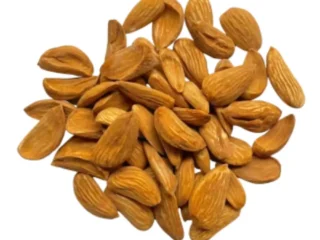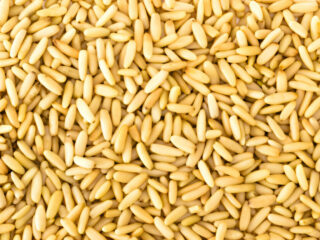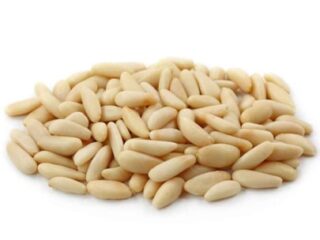Most Popular Product
-
 Premium Black Raisins | Kishmish With Seed | Dry Fruits
₹117.00 – ₹1,860.00
Premium Black Raisins | Kishmish With Seed | Dry Fruits
₹117.00 – ₹1,860.00
-
 Sandukhani Raisins Regular | Dry Fruits
₹173.00 – ₹2,740.00
Sandukhani Raisins Regular | Dry Fruits
₹173.00 – ₹2,740.00
-
 Munnaka Reguler | Dry Fruits
₹55.00 – ₹1,750.00
Munnaka Reguler | Dry Fruits
₹55.00 – ₹1,750.00
-
 Vengurla Whole Cashew | Kaju 150 | Dry Fruits
₹450.00 – ₹3,580.00
Vengurla Whole Cashew | Kaju 150 | Dry Fruits
₹450.00 – ₹3,580.00
-
 Mamra Almond Big | Badam | Dry Fruits
₹750.00 – ₹5,970.00
Mamra Almond Big | Badam | Dry Fruits
₹750.00 – ₹5,970.00
-
 Cashew Roasted salted | Dry Fruits
₹320.00 – ₹1,280.00
Cashew Roasted salted | Dry Fruits
₹320.00 – ₹1,280.00
-
 Cashew Salted | Dry Fruits
₹299.00 – ₹1,199.00
Cashew Salted | Dry Fruits
₹299.00 – ₹1,199.00
-
 Cashew Chilta | Dry Fruits
₹260.00 – ₹1,040.00
Cashew Chilta | Dry Fruits
₹260.00 – ₹1,040.00
-
 Premium Chilgoza Pine Nuts Without Shell
₹1,720.00 – ₹6,880.00
Premium Chilgoza Pine Nuts Without Shell
₹1,720.00 – ₹6,880.00
-
 Mix Berries
₹370.00 – ₹1,479.00
Mix Berries
₹370.00 – ₹1,479.00
Ashapura Trading Company | Dry Fruits | Dried Fruits | Premium Dry Fruits | Dry Fruits in Mumbai | Almond | Raisins | Pista | Cashews | walnuts | Badam | kaju
Trending
-
 Premium Mamra Almond | Badam | Dry Fruits
Rated 5.00 out of 5₹1,905.00 – ₹7,620.00
Premium Mamra Almond | Badam | Dry Fruits
Rated 5.00 out of 5₹1,905.00 – ₹7,620.00 -
 Premium Chilgoza Pine Nuts Without Shell
₹1,720.00 – ₹6,880.00
Premium Chilgoza Pine Nuts Without Shell
₹1,720.00 – ₹6,880.00
-
 Chilgoza Pine Nuts Without Shell
Rated 5.00 out of 5₹1,380.00 – ₹5,520.00
Chilgoza Pine Nuts Without Shell
Rated 5.00 out of 5₹1,380.00 – ₹5,520.00 -
 Chilgoza Pine Nuts With Shell
₹1,107.00 – ₹4,430.00
Chilgoza Pine Nuts With Shell
₹1,107.00 – ₹4,430.00
Quick Links
On Sale
-
 Premium Black Raisins | Kishmish With Seed | Dry Fruits
₹117.00 – ₹1,860.00
Premium Black Raisins | Kishmish With Seed | Dry Fruits
₹117.00 – ₹1,860.00
-
 Sandukhani Raisins Regular | Dry Fruits
₹173.00 – ₹2,740.00
Sandukhani Raisins Regular | Dry Fruits
₹173.00 – ₹2,740.00
-
 Munnaka Reguler | Dry Fruits
₹55.00 – ₹1,750.00
Munnaka Reguler | Dry Fruits
₹55.00 – ₹1,750.00
-
 Vengurla Whole Cashew | Kaju 150 | Dry Fruits
₹450.00 – ₹3,580.00
Vengurla Whole Cashew | Kaju 150 | Dry Fruits
₹450.00 – ₹3,580.00
Walnuts are not only a delicious and versatile nut, but they also offer numerous health benefits that make them a must-have in your daily diet. From promoting heart health to enhancing brain function, walnuts pack a nutritional punch that can improve your overall well-being. In this article, we’ll explore the seven amazing health benefits of walnuts and answer some frequently asked questions about them. Whether you’re looking to buy Akhrot online or searching for the best place to buy walnuts online in India, read on to discover why these nuts are worth adding to your grocery list.
Before diving into the specific health benefits, let’s take a look at the impressive nutritional profile of walnuts. Here’s what makes walnuts a nutritional powerhouse:
- Calories: Walnuts are energy-dense, providing around 654 calories per 100 grams.
- Healthy Fats: Rich in polyunsaturated fats, including alpha-linolenic acid (ALA), an essential omega-3 fatty acid that supports heart and brain health.
- Protein: A good source of plant-based protein, walnuts contain about 15 grams of protein per 100 grams, making them an excellent option for vegetarians and vegans.
- Fiber: With 7 grams of dietary fiber per 100 grams, walnuts aid digestion and support gut health.
- Vitamins and Minerals: Packed with essential vitamins such as Vitamin E, B6, folate, and minerals like magnesium, phosphorus, copper, and manganese.
- Antioxidants: Walnuts are high in antioxidants, including polyphenolic compounds, which help combat oxidative stress and inflammation.
For those looking to incorporate these nutritious nuts into their diet, you can buy Akhrot online from Ashapura Dry Fruits or other trusted suppliers to ensure you’re getting premium quality products.
Walnuts Have a Positive Impact Heart Health
Walnuts are well-known for their heart-healthy properties. The omega-3 fatty acids found in walnuts play a significant role in maintaining cardiovascular health. Here’s how walnuts support heart health:
- Lower Cholesterol Levels: Consuming walnuts regularly can help reduce LDL (bad) cholesterol and increase HDL (good) cholesterol levels, thus improving the overall lipid profile.
- Blood Pressure Regulation: Walnuts contain L-arginine, an amino acid that helps maintain flexible blood vessels and normal blood flow, reducing hypertension risk.
- Anti-Inflammatory Effects: The polyphenols and omega-3s in walnuts possess anti-inflammatory properties that contribute to reducing inflammation linked to heart diseases.
Numerous studies have shown that a diet rich in walnuts can significantly lower the risk of coronary heart disease and stroke. For easy access to these heart-friendly nuts, consider buy premium dry fruits online.

Walnuts Have a Positive Impact on Brain Health
Walnuts are often dubbed “brain food” due to their positive impact on cognitive health. Here’s how walnuts benefit your brain:
- Cognitive Function: The DHA (docosahexaenoic acid) in walnuts supports brain structure and function, enhancing memory and learning capabilities.
- Neuroprotection: Antioxidants and polyphenols present in walnuts protect neurons from oxidative stress and inflammation, reducing the risk of neurodegenerative diseases such as Alzheimer’s and Parkinson’s.
- Mood Regulation: Walnuts are rich in magnesium, a mineral known to help regulate mood and prevent depression and anxiety.
Studies suggest that regular walnut consumption can lead to improved cognitive performance and a reduced risk of age-related cognitive decline. If you’re looking to boost your brainpower, consider adding walnuts to your daily diet.
Walnuts are Healpful in Cancer Prevention
Walnuts contain several bioactive compounds that may play a role in cancer prevention. Here’s how walnuts may help:
- Antioxidant Properties: The antioxidants in walnuts neutralize free radicals, reducing oxidative stress that can lead to cancer development.
- Ellagitannins and Phytochemicals: These compounds exhibit anti-cancer properties, inhibiting cancer cell growth and proliferation.
- Hormonal Regulation: Walnuts contain phytoestrogens that may help regulate hormone-related cancers, such as breast and prostate cancer.
Research has shown that consuming walnuts may help reduce the risk of certain types of cancer, making them a valuable addition to a cancer-preventive diet.
Walnuts Promotes The Growth of Better Gut Bacteria
Your gut health is crucial for overall well-being, and walnuts can contribute to a healthier gut microbiome. Here’s how:
- Prebiotic Fiber: Walnuts contain dietary fiber that acts as a prebiotic, promoting the growth of beneficial gut bacteria.
- Gut Microbiota Diversity: Regular walnut consumption has been linked to increased microbial diversity in the gut, which is associated with better digestion and immune function.
- Reduced Gut Inflammation: The anti-inflammatory properties of walnuts help reduce inflammation in the gut, improving gut health and reducing the risk of gastrointestinal disorders.
Including walnuts in your diet can enhance gut health, leading to better digestion and a stronger immune system.
Lowers Risk of Diabetes
Walnuts can play a significant role in reducing the risk of type 2 diabetes. Here’s how:
- Blood Sugar Control: The healthy fats and fiber in walnuts help regulate blood sugar levels, preventing spikes and crashes.
- Improved Insulin Sensitivity: Consuming walnuts regularly can enhance insulin sensitivity, reducing the risk of developing insulin resistance and type 2 diabetes.
- Weight Management: Walnuts are nutrient-dense and satisfying, helping with weight management, which is crucial for diabetes prevention.
Studies have shown that a walnut-rich diet can improve metabolic health and lower the risk of developing diabetes.
How to Incorporate Walnuts into Your Diet
Walnuts are incredibly versatile and easy to incorporate into your daily meals. Here are some delicious ways to enjoy walnuts:
- Snacking: Enjoy a handful of walnuts as a healthy and satisfying snack on the go.
- Baking: Add walnuts to your favorite muffins, bread, or cookies for extra crunch and flavor.
- Salads: Toss walnuts into salads for a nutritious and crunchy addition.
- Smoothies: Blend walnuts into smoothies for a creamy texture and added nutrition.
- Breakfast: Sprinkle walnuts over yogurt, oatmeal, or cereal for a heart-healthy breakfast.
If you’re ready to enjoy the numerous health benefits of walnuts, you can buy dry fruits in India from reputable sources like Ashapura Dry Fruits, ensuring you get the freshest and highest quality walnuts available.
Conclusion
Walnuts are a nutritional powerhouse offering a myriad of health benefits. From supporting heart and brain health to promoting gut bacteria and lowering the risk of diabetes, these nuts are a valuable addition to any diet. Whether you enjoy them as a snack or incorporate them into your meals, walnuts provide essential nutrients that can enhance your overall well-being. To experience these amazing benefits firsthand, consider purchasing walnuts from reliable sources and adding them to your daily diet.
FAQs About Walnuts
1. Are walnuts good for weight loss?
Yes, walnuts are excellent for weight loss. Despite their calorie density, walnuts are rich in fiber, protein, and healthy fats, which promote satiety and reduce overall calorie intake. Including walnuts as part of a balanced diet can help with weight management.
2. How many walnuts should I eat in a day?
A recommended serving size is about 1 ounce (28 grams) or approximately 14 walnut halves per day. This provides the right amount of nutrients without excessive calorie intake.
3. Can walnuts improve skin health?
Yes, walnuts can enhance skin health. The omega-3 fatty acids, antioxidants, and vitamin E in walnuts help maintain skin moisture, reduce inflammation, and protect against sun damage.4. Are there any allergies associated with walnuts?
Some individuals may be allergic to walnuts and experience symptoms such as itching, swelling, or difficulty breathing. If you suspect an allergy, it’s best to avoid walnuts and consult a healthcare professional.
